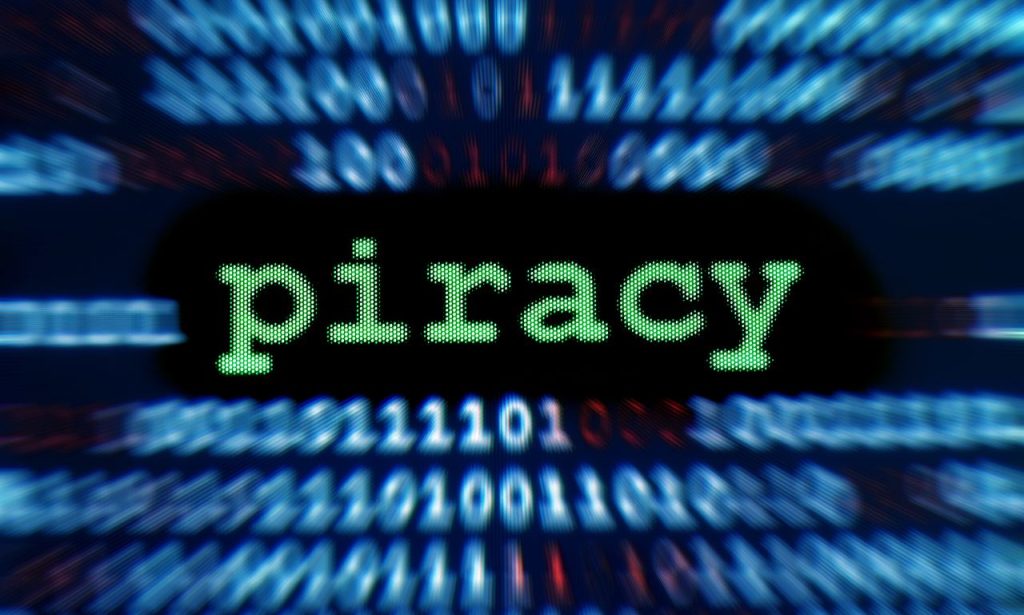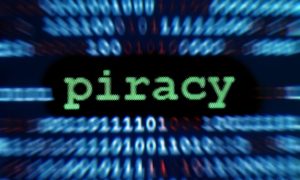Australia takes digital piracy seriously, and understanding the landscape can save you from hefty fines and legal troubles. Copyright infringement affects everyone, from content creators losing revenue to consumers facing potential penalties for illegal downloading.
This article covers everything you need to know about piracy in Australia. We’ll explore technological measures against piracy, examine the reasons behind digital piracy, and discuss key stakeholders working to combat these activities.
Whether you’re curious about current regulations or looking for legal ways to access content, this comprehensive guide provides the insights you need to make informed decisions about digital content consumption.
Technological Measures Against Piracy
Australia has implemented sophisticated technological barriers to combat online piracy. Internet service providers now use advanced filtering systems that block access to known pirate sites within hours of identification.
The Australian Communications and Media Authority (ACMA) works closely with rights holders to maintain updated lists of blocked domains. These lists include major torrent sites, streaming platforms offering unauthorized content, and direct download services that distribute copyrighted materials without permission.
DNS blocking represents the primary technological approach. When users attempt to access blocked sites, their requests are redirected to warning pages that explain the legal risks. However, tech-savvy users often circumvent these measures using VPNs or alternative DNS services.
Content identification technology has also undergone significant evolution. Automated systems scan uploaded content across platforms, comparing digital fingerprints against databases of copyrighted materials. This process occurs in real time, preventing unauthorized distribution before it gains traction.
Reasons Behind Digital Piracy

Research consistently shows that price sensitivity drives many piracy decisions, particularly among younger demographics with limited disposable income.
Content availability creates another significant driver. When movies, TV shows, or software aren’t available through legitimate channels in Australia, consumers often turn to illegal alternatives. Geographic restrictions and delayed release schedules compound this problem.
Convenience also plays a crucial role. Some users find pirate sites easier to navigate than legitimate platforms with complex subscription models or regional limitations. The desire for content without advertisements or platform restrictions also motivates illegal downloading.
Educational gaps contribute to the problem. Many people don’t fully understand copyright laws or the potential consequences of their actions. They view piracy as a victimless crime, failing to recognize the economic impact on content creators and industries.
Key Stakeholders in Combating Piracy
Creative Content Australia leads the fight against digital piracy, representing major entertainment companies and content creators. This organization coordinates anti-piracy campaigns, educates consumers about legal alternatives, and works with law enforcement agencies to pursue copyright violators.
Internet service providers serve as crucial gatekeepers in the anti-piracy ecosystem. Companies like Telstra, Optus, and TPG implement court-ordered site blocking and cooperate with authorities in investigations. They also educate customers about legal risks through warning systems and educational materials.
Government agencies play essential enforcement roles. The Australian Federal Police investigates large-scale commercial piracy operations, while the Department of Communications and the Arts develops policy frameworks to address this issue. Courts handle civil litigation and criminal prosecutions related to copyright infringement.
Consequences of Piracy
Piracy consequences in Australia range from civil penalties to criminal charges, depending on the scale and nature of infringement. Individual downloaders typically face civil action from rights holders, with potential damages reaching thousands of dollars per infringed work.
Commercial-scale piracy operations face much harsher penalties. Criminal charges can result in fines up to $117,000 for individuals and $585,000 for corporations. Prison sentences of up to five years apply to serious commercial infringement cases.
Beyond legal consequences, piracy creates significant security risks. Illegal download sites often contain malware, viruses, and other malicious software that can compromise personal devices and data. Identity theft and financial fraud frequently occur when visiting suspicious piracy websites.
Economic impacts extend beyond individual users. The entertainment industry estimates that billions of dollars in lost revenue are incurred annually due to piracy, which impacts job creation and investment in new content. This reduction in legitimate revenue ultimately limits the variety and quality of available entertainment options.
Comparative Analysis of Piracy Laws
Australia vs. United States
Australian copyright law differs significantly from U.S. legislation in enforcement mechanisms and penalty structures. The Digital Millennium Copyright Act in the United States provides safe harbor provisions for platforms that promptly remove infringing content, whereas Australia’s approach focuses more heavily on site blocking.
Statutory damages in the United States can reach $150,000 per work for willful infringement, compared to Australia’s more moderate civil penalty framework. However, Australia’s criminal penalties for commercial piracy often exceed comparable U.S. sentences in practical application.
Australia vs. United Kingdom
The UK’s Digital Economy Act shares similarities with Australian approaches, particularly about site-blocking procedures. Both countries require court orders for ISP blocking, though the UK process tends to be faster and more streamlined.
Enforcement priorities differ between the jurisdictions. The UK focuses heavily on commercial-scale operations, while Australia maintains broader enforcement, including individual users. This difference reflects varying cultural attitudes toward personal privacy and copyright enforcement.
Role of International Treaties
Australia’s participation in international copyright treaties has a significant impact on domestic piracy laws. The Berne Convention establishes fundamental copyright principles that Australian legislation must respect, including automatic protection for creative works and minimum penalty standards.
Trade agreements, such as the Trans-Pacific Partnership, influence enforcement requirements and cooperation mechanisms with other countries. These treaties often include provisions that require specific anti-piracy measures and cooperation on cross-border enforcement.
The World Intellectual Property Organization provides frameworks for addressing online piracy across international boundaries. Australia actively participates in these initiatives, sharing best practices and coordinating responses to global piracy networks.
The Importance of Purchasing Legitimate Products
Supporting legitimate content markets ensures continued investment in high-quality entertainment and software development. When consumers purchase licensed products, they directly contribute to creator compensation and future project funding.
Legitimate purchases offer a superior user experience compared to pirated alternatives. Official software receives regular updates, security patches, and customer support that pirated versions cannot offer. Entertainment content through legitimate channels typically provides better quality and reliability.
Consumer protection laws apply only to legitimate purchases. Buyers of official products enjoy warranty protection, refund rights, and legal recourse if products fail to meet expectations. These protections don’t exist for pirated materials.

Benefits of Licensed Streaming Platforms
Licensed streaming services offer compelling alternatives to piracy with significant advantages. Platforms like Netflix, Stan, and Disney+ provide vast content libraries at reasonable monthly costs, often less than the price of a single movie ticket.
Content quality and reliability consistently surpass those of illegal alternatives. Legitimate streaming services offer high-definition video, multiple language options, and synchronized subtitles. Technical support ensures a seamless viewing experience across various devices and platforms.
Original content production by streaming platforms creates exclusive entertainment unavailable through piracy channels. These investments in original programming provide unique value propositions that illegal alternatives cannot match.
Advantages of Legitimate Software Purchases
Licensed software provides security guarantees that pirated versions cannot offer. Official products receive regular security updates, protecting users from emerging threats and vulnerabilities. This protection becomes increasingly important as cyber threats evolve.
Technical support and documentation accompany legitimate software purchases. Users can access help resources, tutorials, and customer service when encountering problems. These resources save time and frustration compared to troubleshooting pirated software independently.
Professional and educational licensing options make legitimate software more affordable for specific user groups. Student discounts, volume licensing, and subscription models reduce costs while maintaining full legal compliance.
Conclusion
Understanding piracy laws in Australia empowers consumers to make informed decisions about digital content consumption. The legal framework continues evolving to address new technologies and distribution methods, making awareness more important than ever.
Legitimate alternatives have never been more accessible or affordable. Streaming services, software subscriptions, and digital marketplaces provide convenient access to vast content libraries at reasonable prices. These options eliminate legal risks while supporting continued content creation.
The choice between piracy and legitimate consumption ultimately affects the entire creative ecosystem. Supporting legal channels ensures continued investment in quality content while protecting personal security and legal standing. Smart consumers recognize that legitimate options provide superior value when considering all factors.
ALSO READ: Ways Attorneys Can Strengthen Their Online Presence
FAQs
A: Individual civil penalties can reach thousands per infringed work, while criminal charges carry fines of up to $117,000 and imprisonment for up to five years for serious commercial infringement.
A: VPNs may hide activity from ISPs but don’t provide legal protection. Copyright holders can still pursue legal action if they identify infringement through other means.
A: Yes, platforms like ABC iView, SBS On Demand, and YouTube offer free legal content. Many services also provide free tiers with advertisements.
A: Copyright holders monitor BitTorrent networks and other sharing platforms, recording the IP addresses of users downloading their content for potential legal action.
A: Stop the infringing activity immediately and consider seeking legal advice. Document all communications and avoid admitting guilt without proper legal consultation.




